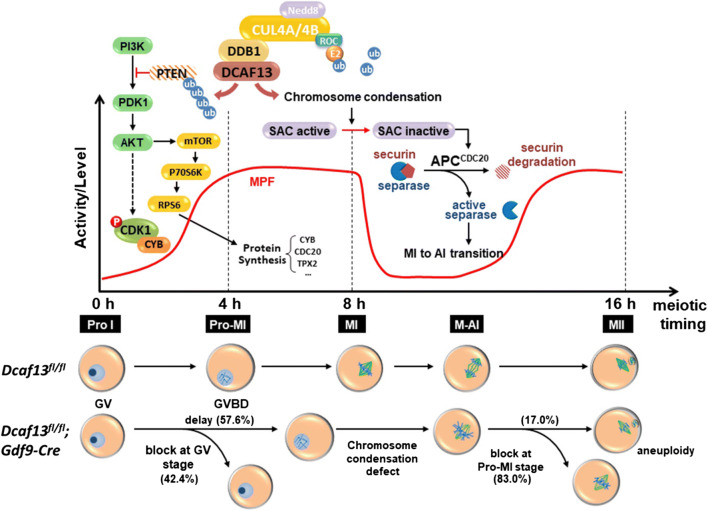Fig. 8.
A diagram showing the role of DCAF13 in oocyte meiotic maturation. DCAF13 is required to maintain normal protein synthesis activity in maturing oocytes. During meiosis resumption stage, CRL4DCAF13 facilitates the activation of AKT by targeting PTEN for polyubiquitination and degradation, which promotes the translation of Cyclin B1 and TPX2 and the activation of MPF. Dcaf13 knockout in oocytes caused decreased MPF activity and impaired meiotic cell cycle progression including GV arrest, delayed GVBD, and chromosome condensation defects. As a result, chromosomes fail to be properly aligned at the spindle middle plate, the spindle assembly checkpoint is activated, and most Dcaf13 null oocytes are arrested at the prometaphase I. In addition, insufficient accumulation of CDC20 proteins also impairs the activation of anaphase promoting complex (APC) and prevents the metaphase-to-anaphase transition in meiosis I. Even a small portion of Dcaf13 null oocytes can release PB1 and develop to MII, and they have a high rate of aneuploidy due to accumulated meiotic abnormalities

